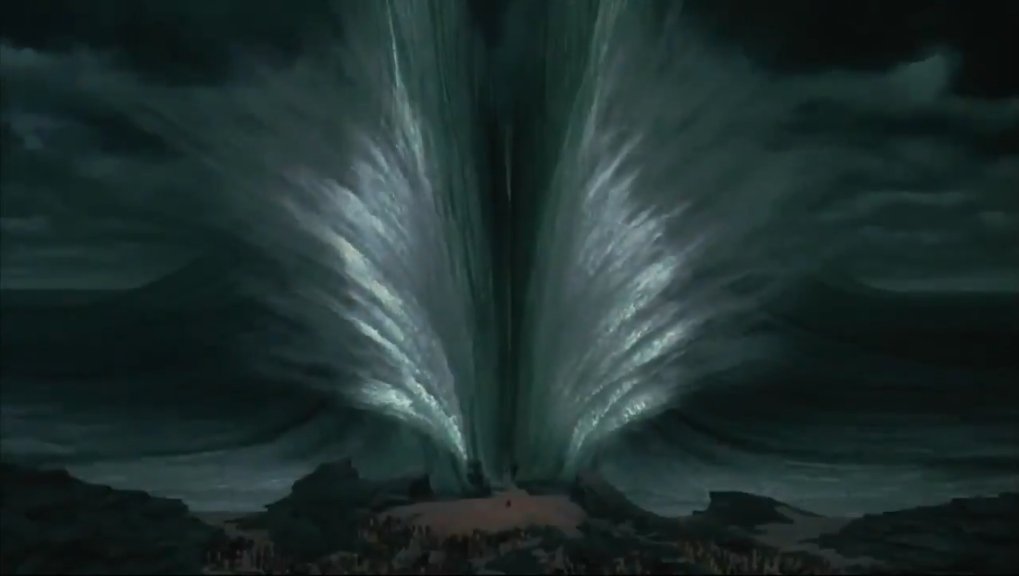Happy Easter to all! In honor of the day, another thread about 1990s animated children& #39;s movies and political philosophy, this time about The Prince of Egypt, which I watched on Good Friday, but also tying together the whole series (this is probably the last, for now).
My friend @lameseverian recently remarked that PoE feels like it came from a different world. A world where cultural "elites" don& #39;t despise religion, where you can make a Bible movie that& #39;s not an indie Passion project or a gritty reboot, but a kids movie.
Now, two facts about Hollywood might seem to explain PoE away. 1. Hollywood is very Jewish, and even secular Jews care about the Exodus story. 2. Hollywood loves itself, and PoE is in part an homage to 1956& #39;s The Ten Commandments (though I& #39;d say PoE is a better movie).
But the above doesn& #39;t actually explain much. It& #39;s all still true today, and yet it& #39;s hard to imagine PoE coming out in 2020; instead, we get girl power garbage. This is the third, crucial, difference between then and now: 90s kids movies cared about political philosophy.
Somehow---I lack a good account of why, but I suspect it has to do with the end of the Cold War---it became trendy for 90s kids movies to focus on politics. Not just the good kids movies like those I& #39;ve talked about before, but also mediocre ones like Pocahontas and Antz.
This ended, by my reckoning, around 2001 (a result of 9/11?). Sure, post-2001 kids movies might have political themes (the environment! girl power!), or politically important characters (everyone still loves a princess), but they were no longer ABOUT politics.
More specifically, 1994 saw The Lion King& #39;s deeply reactionary politics: natural hierarchy! noblesse oblige! (thread: https://twitter.com/s_r_tarnmoor/status/1148480465030066176).">https://twitter.com/s_r_tarnm... Four years later, three movies came out each with their own take on TLK& #39;s questions: Mulan, A Bug& #39;s Life, The Prince of Egypt.
Note that these three came out the same year (1998) and from different studios (Disney, Pixar, Dreamworks, respectively), so I& #39;m not saying they& #39;re talking to each other. But I am quite convinced they& #39;re each responding to TLK which outlining an alternative political vision.
First, Mulan (thread: https://twitter.com/s_r_tarnmoor/status/1183407911969738753).">https://twitter.com/s_r_tarnm... The main link with TLK is through the ancestors, who parallel Mufasa& #39;s ghost. (There& #39;s a moment where the parallel is explicit, but sadly I can& #39;t locate it atm.) But the ancestors aren& #39;t profound; they& #39;re comical & often wrong.
By which Mulan says to TLK: the important traditions don& #39;t concern governance, but culture, and the point isn& #39;t to follow them blindly, but to riff on them creatively. In fact, such creative riffing IS culture, the veil by which human reason tames human sexuality.
Second, A Bug& #39;s Life (thread: https://twitter.com/s_r_tarnmoor/status/1173019614915301376).">https://twitter.com/s_r_tarnm... The TLK allusions are pervasive, from Ant Island = Pride Rock to the revised circle of life: "The ants pick the food, the ants eat the food, and the grasshoppers leave." ABL says: not restoration, but revolution.

 Read on Twitter
Read on Twitter


